Americans think the Biden/Trump election was one for the ages exposing huge ideological beliefs, highly charged politics, and a fight for American values. Looking back at history, most people know the presidential challenges as the country tore apart as two contrasting political parties emerged in 1856.
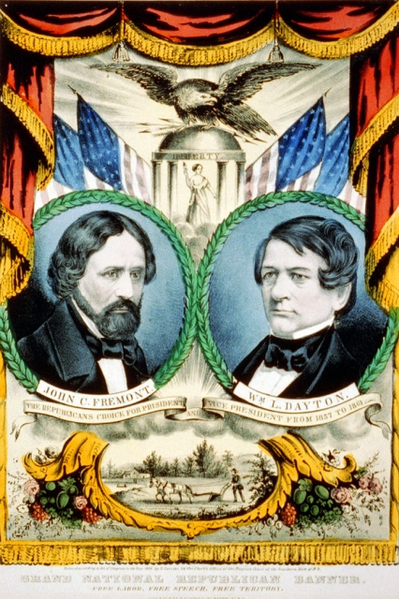
People often note Abraham Lincoln, who was the first Republican President in 1860 and 1864.
William was a favorite of Abraham Lincoln, who wanted William Dayton as his Vice Presidential running mate for the 1864 presidential campaign. IF that had played out and Lincoln was assassinated in 1865 at Ford’s Theater in DC, William Dayton would have been President of the United States.
MR LOCAL HISTORY
Very few people know the story before Lincoln’s win, there was a Democrat named James Buchanan held the office from 1856 -1860 unseating President Millard Fillmore from getting the Democratic nomination. Buchanan defeated the first Republican to form and run for the nation’s highest office. Many don’t know that the first Republican presidential ticket was not Abraham Lincoln, but John C. Fremont and Basking Ridge, New Jersey’s William Lewis Dayton.
John C. Fremont was an American explorer, military officer, and politician. He was a U.S. Senator from California, and in 1856 was the first Republican nominee for President of the United States. The Republican party’s FIRST Vice Presidential candidate was William Lewis Dayton of Basking Ridge. Dayton was selected by the newly formed Republican Party as their first nominee for Vice President of the United States over Abraham Lincoln at the Philadelphia Convention.
That’s right, the Republican party’s FIRST Vice Presidential candidate was William Lewis Dayton of Basking Ridge, New Jersey. Dayton was selected by the newly formed Republican Party as their first nominee for Vice President of the United States over Abraham Lincoln at the Philadelphia Convention.
To win the Presidency in the 1856 election, the Republicans concentrated on four swing states, Pennsylvania, New Jersey, Indiana, and Illinois William Lewis Dayton (February 17, 1807 – December 1, 1864) was a graduate of the Brick Academy, an American politician, active first in the Whig Party and later in the Republican Party. In the 1856 presidential election, he became the first Republican vice-presidential nominee when nominated alongside John C. Frémont. Frémont (age 43) was the first presidential candidate of the new Republican Party. The Republicans, whose party had formed in 1854, were united in their opposition to the Pierce Administration and the spread of slavery into the West.
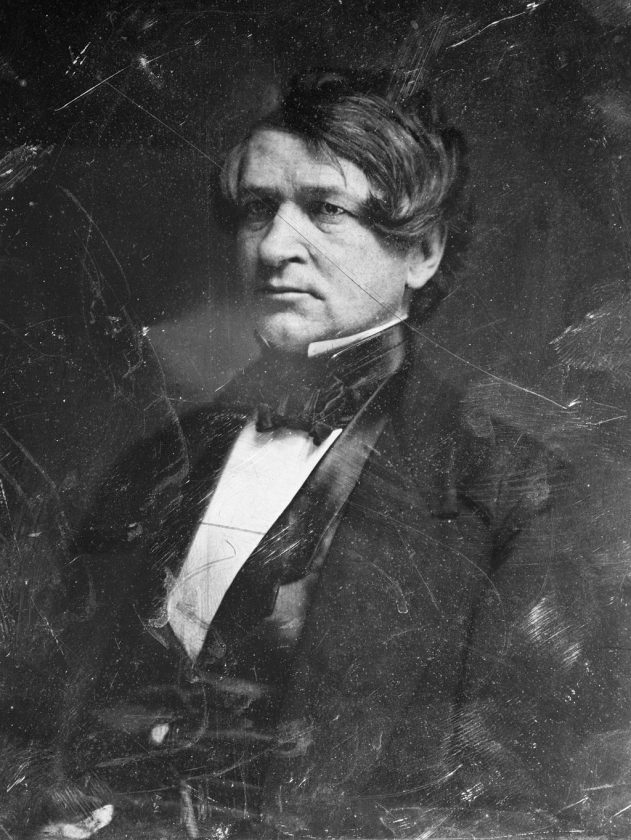
1856 Republican Platform – Abolish Slavery
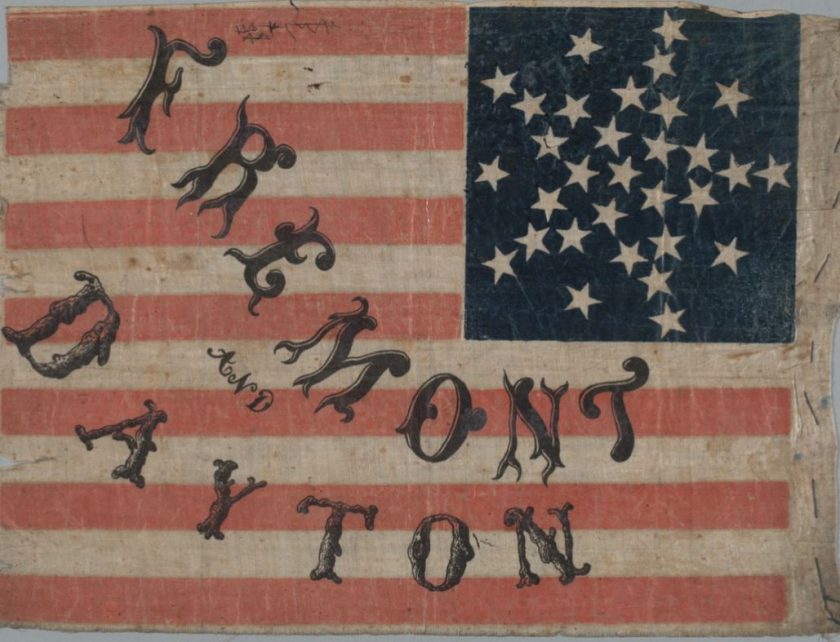
Republican luminaries were sent out decrying the Democratic Party’s attachment to slavery and its support of the repeal of the Missouri Compromise. The experienced Democrats, knowing the Republican strategy, also targeted these states, running a rough media campaign, while illegally naturalizing thousands of alien immigrants in Pennsylvania. The campaign was particularly abusive, as the Democrats attacked Frémont’s illegitimate birth and alleged Frémont was Catholic.
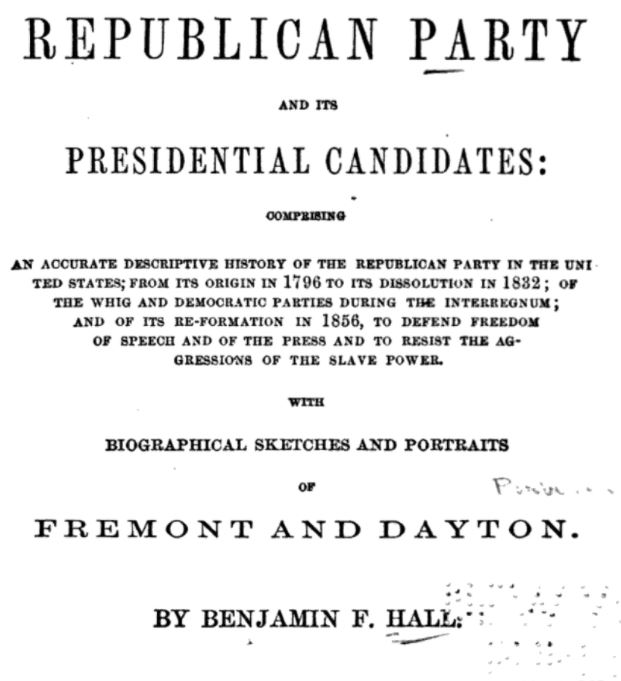
1856 – Buchanan Defeats Fremont
Frémont was defeated in the 1856 presidential race, having placed second to James Buchanan in a three-way election; he did not carry the state of California. Frémont received 114 electoral votes, and Buchanan received 174 votes. Millard Fillmore ran as a third-party candidate representing the American Party. The popular vote went to Buchanan who received 1,836,072 votes to 1,342,345 votes for Frémont held on November 4, 1856.
The Democrats, led by Southern politicians, supported the expansion of slavery. Buchanan won both the popular vote and a majority of the electoral vote, taking all but one slave state and five free states. His popular vote margin of 12.2% was the greatest between 1836 and 1904. However, the election was far closer than it appeared. If Fillmore had won any two of Kentucky, Tennessee, and Louisiana (or all three) and Frémont had won Illinois they would have won the election.
1860 – Lincoln Rebounds & Wins Presidency
What many don’t know is that in 1860, Dayton sought the Republican presidential nomination. At the national convention in Chicago, Dayton received 14 votes on the first ballot, all from New Jersey. He lost four New Jersey delegates to Lincoln on the second ballot. New Jersey gave Lincoln eight votes on the third ballot, with five going to William Seward and just one holding for Dayton (Lincoln won the nomination on the third ballot).
In 1860 the Republicans did not re-nominate John Fremont and William Dayton, but rather nominated Abraham Lincoln for president. The Radical Republicans, a group of hard-line abolitionists, were upset with Lincoln’s positions on the issues of slavery and post-war reconciliation with the southern states. These radicals had bitterly resented Lincoln’s dismissal of Frémont in 1861 over his emancipation edict in St. Louis.
On May 31, 1864, the short-lived Radical Democracy Party nominated Frémont for president in Cleveland. Frémont was supported by Radical Republicans, immigrants from Western Germany, and War Democrats. This fissure in the Republican Party divided the party into the anti-Lincoln Radical Republicans, who nominated Frémont, and the pro-Lincoln Republicans.
Lincoln took the nomination and later won the presidency.
There is an ironic footnote to the 1860 convention story: A few blocks from the Wigwam convention center in Chicago, on the second night of the convention, the McVicker’s Theater was opening “Our American Cousin”, the play Lincoln would be watching at Ford’s Theater his last night on Earth.
1864 – Dayton Might Have Been President
Now, here is where the story gets interesting. William was a favorite of Abraham Lincoln, who wanted William Dayton as his Vice President for the 1864 presidential campaign. But because a Southerner was thought to be a better candidate to heal the wounds of the Civil War, the Republican Convention chose Andrew Johnson instead. Since Lincoln was assassinated in 1865 at Ford’s Theater in DC, William Dayton would have been President.
There is no man in public life for whose character I have a higher admiration”.
PResident Abraham Lincoln about william Lewis Dayton.
While Ambassador to France during the Lincoln term, Dayton died in Paris on December 1, 1864, while trying to convince Napoleon Bonaparte and the French NOT to legitimize the recognition of the Confederacy. At his death, President Lincoln wrote: “There is no man in public life for whose character I have a higher admiration.”
With the assassination of President Abraham Lincoln on April 14, 1865, Andrew Johnson became the 17th President of the United States (1865-1869), an old-fashioned southern Jacksonian Democrat of pronounced states’ rights views.
And as they say, the rest is history.
Additional Information
William Lewis Dayton (1807-1864)
- Regent of the Smithsonian Institution from 1861 to 1864
- 1819 (12) Attended the Brick Academy under Dr. Brownlee
- 1825 (18) – Graduated College of New Jersey (Princeton Univ.)
- 1830 – Passed the Bar
- Moved to Freehold, New Jersey
- 1837 (30) – Entered politics – voted NJ State Senator (upper house)
- Justice of the New Jersey Supreme Court, 1838-1841
- 1842 (35) – United States Senator, 1842-1851 appointed by Gov. Pennington to Samuel Southard’s seat after his death (another Basking Ridge native).
- 1856 (49) – Vice Presidential candidate for the Republican Party, 1856
- Attorney-General of New Jersey, 1857-1861
- 1861 (54) – Minister to France, 1861-1864
- 1864 (57) – Died in Paris
- Both of Williams’ parents (Joel (Plot 624) and Nancy) are buried in the Basking Ridge Presbyterian churchyard cemetery. His brother Jonathan, Amos, and sister Bailey are also there.
- William and his wife Margaret Vanderveer (the Somerville line) are buried in Riverview Cemetery in Trenton.
- The Dayton’s had 6 children:
- Ferdinand Vanderveer (Buried Riverview Cemetery, Trenton)
- Anna Lewis (Buried Riverview Cemetery, Trenton)
- William Lewis Jr. (Buried Riverview Cemetery, Trenton)
- Edward Lewis (Buried Riverview Cemetery, Trenton)
- Robert (Buried Riverview Cemetery, Trenton)
- Margaret Vanderveer (Buried Riverview Cemetery, Trenton)
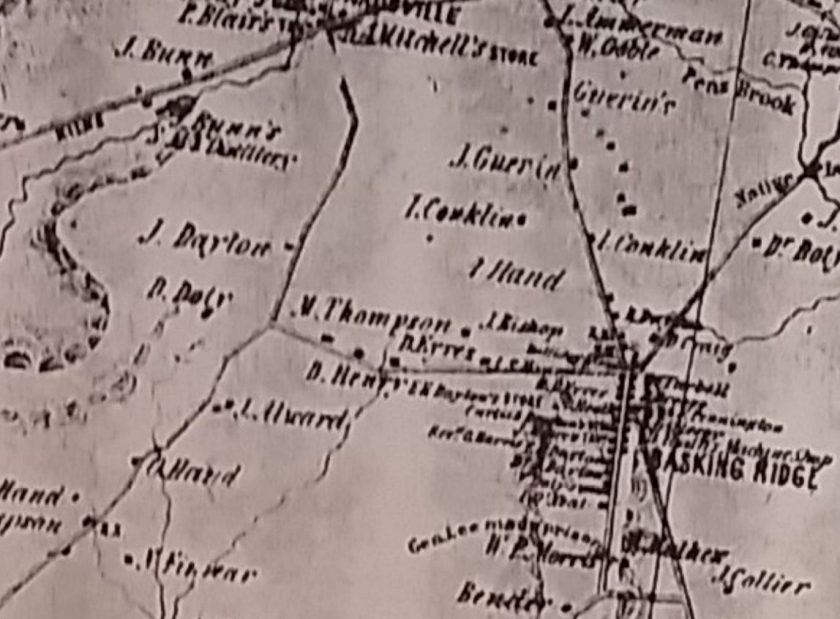
- Republicans Run their First Presidential Candidate
- The election of 1856
- Learn more about Basking Ridge’s own William Dayton
- The William L. Dayton Papers – Princeton University, NJ
- William Lewis Dayton gravesite – Trenton, NJ
- Learn more about 1856 presidential candidate John Fremont
- Learn more about the Mr. Local History Project
About the Researcher
Brooks Betz is the official historian for Bernards Township. He is also the founder and trustee for the Mr. Local History Project, a non-profit dedicated to preserving and promoting local history with a social twist throughout New Jersey.
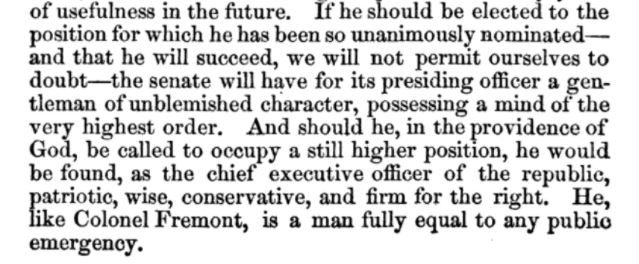
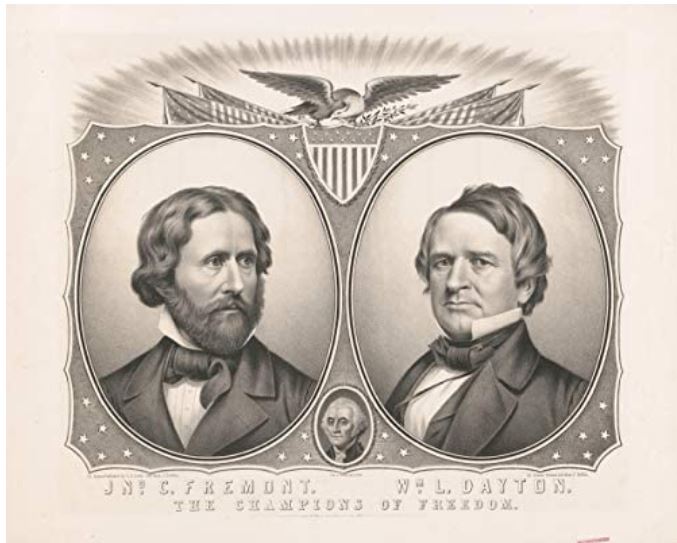
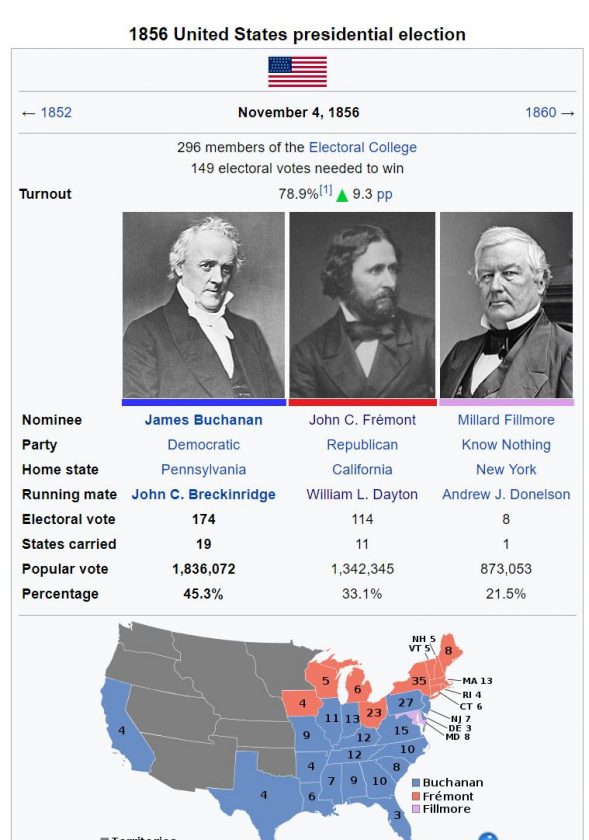
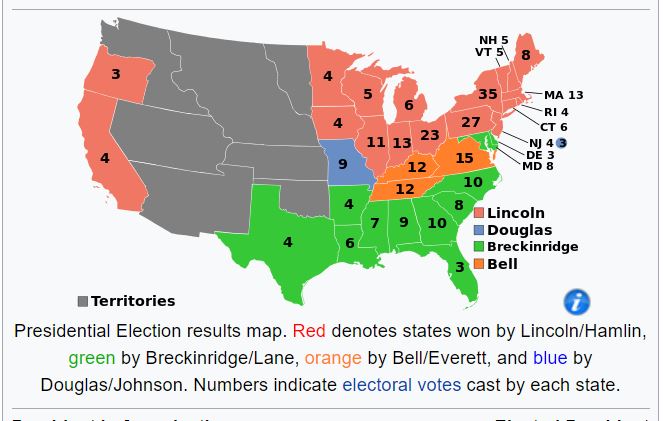


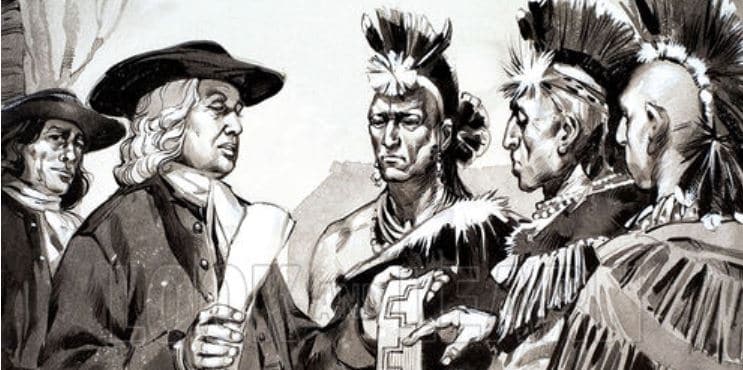
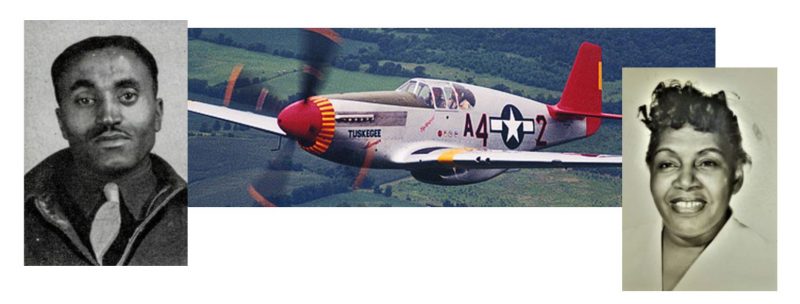
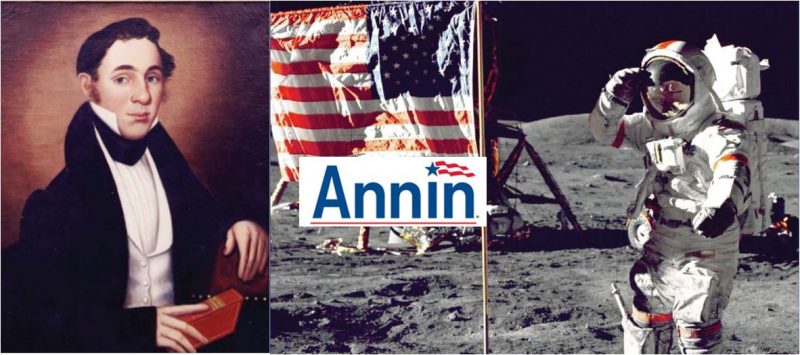
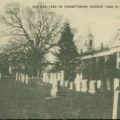
Wow so Dayton Cresent is so named for the Dayton family farm!!! Interesting all the way around Brooks!